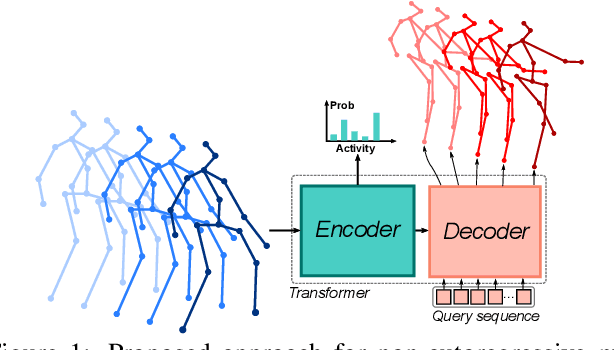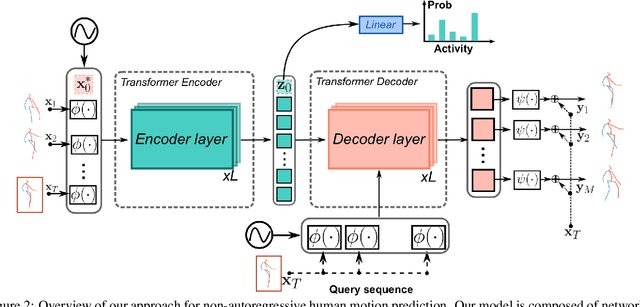Pose Transformers (POTR): Human Motion Prediction with Non-Autoregressive Transformers
Paper and Code
Sep 15, 2021



We propose to leverage Transformer architectures for non-autoregressive human motion prediction. Our approach decodes elements in parallel from a query sequence, instead of conditioning on previous predictions such as instate-of-the-art RNN-based approaches. In such a way our approach is less computational intensive and potentially avoids error accumulation to long term elements in the sequence. In that context, our contributions are fourfold: (i) we frame human motion prediction as a sequence-to-sequence problem and propose a non-autoregressive Transformer to infer the sequences of poses in parallel; (ii) we propose to decode sequences of 3D poses from a query sequence generated in advance with elements from the input sequence;(iii) we propose to perform skeleton-based activity classification from the encoder memory, in the hope that identifying the activity can improve predictions;(iv) we show that despite its simplicity, our approach achieves competitive results in two public datasets, although surprisingly more for short term predictions rather than for long term ones.
 Add to Chrome
Add to Chrome Add to Firefox
Add to Firefox Add to Edge
Add to Edge